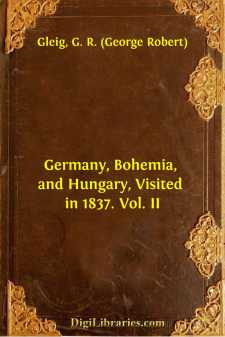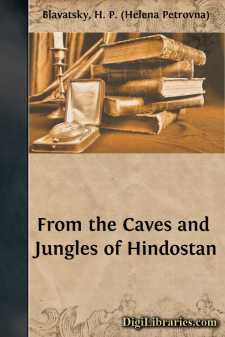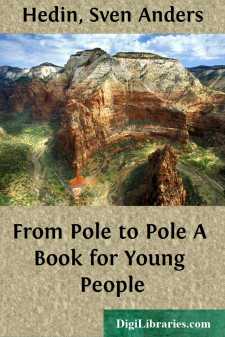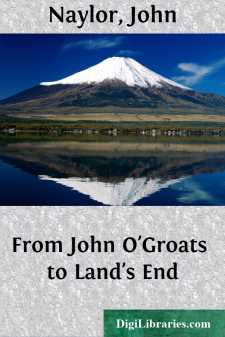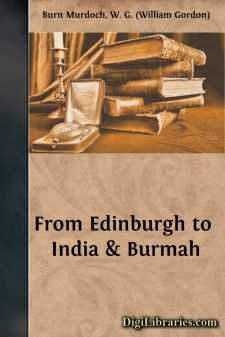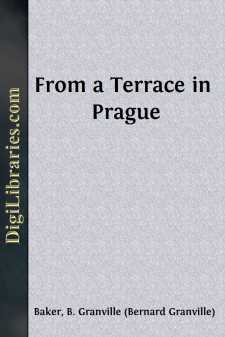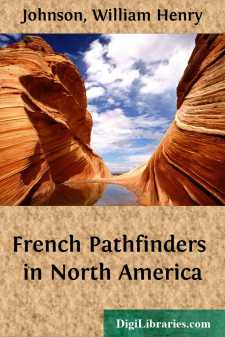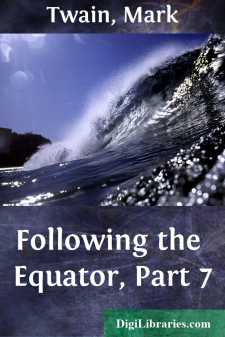Travel
- Africa 29
- Alaska 3
- Asia 46
- Australia & Oceania 26
- Canada 31
- Caribbean & West Indies 5
- Central America 1
- Europe 151
- General 39
- Maps & Road Atlases 1
- Mexico 10
- Middle East 18
- Polar Regions 7
- Reference 11
- Restaurants 1
- Russia 6
- South America 16
- United States 71
Travel Books
Sort by:
CHAPTER I. THE GULDEN KRONE. COUNT THUN'S CASTLE AND GROUNDS. GLORIOUS SCENERY. THE MARCH RESUMED. SUPERSTITIONS OF THE BOHEMIANS NOT IDOLATRY. STATE OF PROPERTY. OF THE AGRICULTURAL POPULATION. KAMNITZ. THE COW-HERDS. STEIN JENA. HAYDE. We had quitted home not unprepared for the suspicious looks which innkeepers might be expected to cast upon us, strangely equipped as we were, rude of speech, and...
more...
In Bombay Late in the evening of the sixteenth of February, 1879, after a rough voyage which lasted thirty-two days, joyful exclamations were heard everywhere on deck. "Have you seen the lighthouse?" "There it is at last, the Bombay lighthouse." Cards, books, music, everything was forgotten. Everyone rushed on deck. The moon had not risen as yet, and, in spite of the starry tropical...
more...
ACROSS EUROPE Stockholm to Berlin Our journey begins at Stockholm, the capital of my native country. Leaving Stockholm by train in the evening, we travel all night in comfortable sleeping-cars and arrive next morning at the southernmost point of Sweden, the port of Trelleborg, where the sunlit waves sweep in from the Baltic Sea. Here we might expect to have done with railway travelling, and we rather...
more...
by:
Harry De Windt
CHAPTER I THROUGH EUROPE. THE TRANS-SIBERIAN RAILWAY. The success of my recent land expedition from Paris to New York is largely due to the fact that I had previously essayed the feat in 1896 and failed, for the experience gained on that journey was well worth the price I paid for it. On that occasion I attempted the voyage in an opposite direction—viz., from America to France, but only half the...
more...
CHAPTER I. Mr. X., whose impressions and mild adventures I have undertaken the task of editing, has asked me to narrow his personal introduction to such limits as is consistent with the courtesy due to my readers, if haply I find any. He prefers, as his pseudonym implies, to remain an unknown quantity. I need only explain that he is an officer employed in one of the small States of the Malay Peninsula,...
more...
by:
John Naylor
HOW WE GOT TO JOHN O' GROAT'S Thursday, September 7th. It was one o'clock in the morning when we started on the three-mile walk to Warrington, where we were to join the 2.18 a.m. train for Glasgow, and it was nearly ten o'clock when we reached that town, the train being one hour and twenty minutes late. This delay caused us to be too late for the steamboat by which we intended to...
more...
CHAPTER I Some time ago I wrote a book about a voyage in a whaler to the far south, to a white, silent land where the sun shines all day and night and it is quiet as the grave and beautiful as heaven—when it is not blowing and black as—the other place! A number of people said they liked it, and asked me to write again; therefore these notes and sketches on a Journey to India and Burmah. They may...
more...
CHAPTER I Refers in a general way to several great and historic cities of this earth. Indicates the routes by which Prague may be reached by the traveller from the West, tells a wayside story or two and mentions several very great people, also others of a less degree. Digresses seriously from the purpose of the whole book by raking up the author's personal recollections of people that lived and...
more...
THE ORIGIN AND DISTRIBUTION OF THE INDIAN RACE America probably peopled from Asia.—Unity of the American Race.—The Eskimo, possibly, an Exception.—Range of the Several Groups. In an earlier volume, "Pioneer Spaniards in North America," the probable origin of the native races of America has been discussed. Let us restate briefly the general conclusions there set forth. It is the universal...
more...
by:
Mark Twain
In the first place God made idiots. This was for practice. Then He made School Boards.—Pudd'nhead Wilson's New Calendar.Suppose we applied no more ingenuity to the instruction of deaf and dumb and blind children than we sometimes apply in our American public schools to the instruction of children who are in possession of all their faculties? The result would be that the deaf and dumb and...
more...


